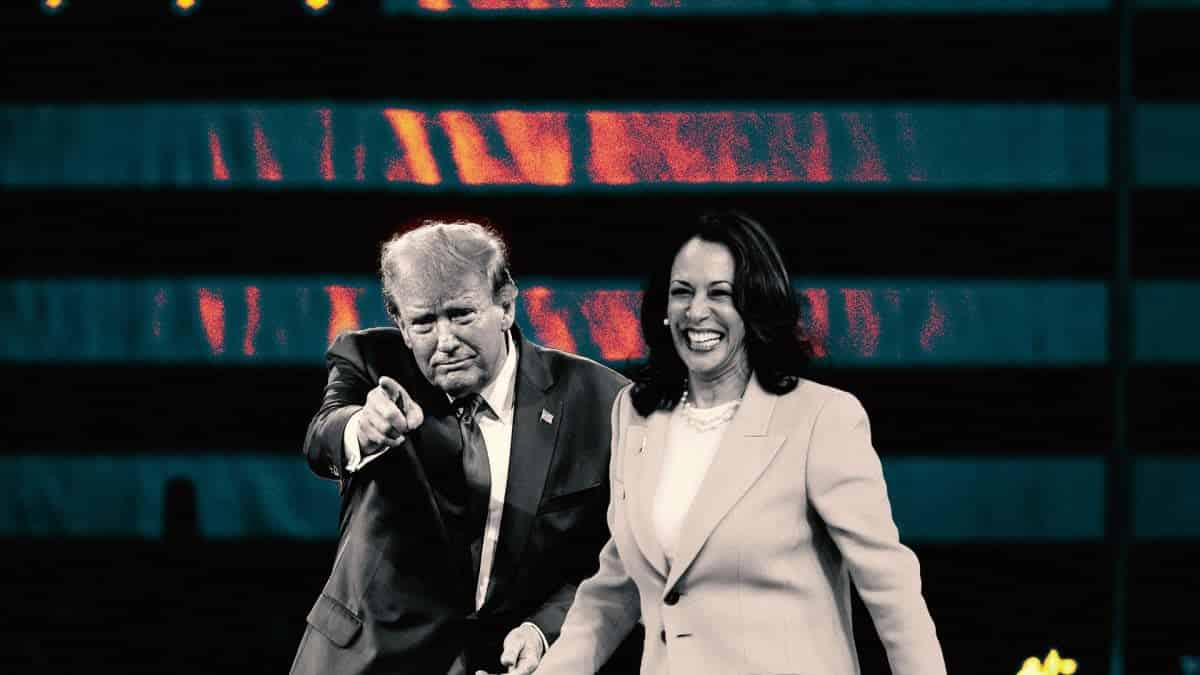Polymarket claims no evidence of market manipulation in US election bets, despite slippage issues: analysts
Quick Take Polymarket’s claim there is no evidence of market manipulation on the platform supports the view that prediction markets reflect all available information at a given moment, analysts at Presto said. However, amid huge slippage for one Polymarket bettor on Friday, open interest levels suggest the market lacks liquidity, Kaiko analysts noted.

Polymarket's recent claim that there was no evidence of market manipulation following large U.S. election whale bets on the platform supports the view that prediction markets simply reflect all available information at a given moment, according to analysts at trading and financial services firm Presto.
The decentralized predictions platform revealed on Thursday that a whale behind four large accounts who spent more than $45 million on Polymarket bets for Donald Trump to win the U.S. presidential election was a French national with extensive trading experience and a financial services background.
Onchain sleuths had previously warned that the accounts, including “Fredi9999,” may be managed by a single entity seeking to skew the odds in Trump’s favor.
“Based on the investigation, we understand that this individual is taking a directional position based on personal views of the election,” a Polymarket spokesperson told Bloomberg. “Further, our investigation to date has not identified any information to suggest that this user manipulated, or attempted to manipulate, the market. This user has agreed not to open further accounts without notice.”
Prediction markets, like any market, aren't always accurate but effectively aggregate real-time public sentiment, Presto analysts Peter Chung and Min Jung wrote on Friday. In elections, they can often provide faster insights than traditional polls or media by capturing trader enthusiasm, with blockchain further supporting this by improving liquidity aggregation to generate reliable signals, the analysts said.
The U.S. presidential election winner market has become the largest on the platform, generating more than $2.4 billion in trading volume since launching in January, with Trump currently leading Kamala Harris by 63.9% to 35.8% odds of winning the election.
Polymarket is theoretically restricted for U.S. users, meaning the odds should not reflect the intentions of U.S. voters, according to Kaiko analyst Adam Morgan McCarthy. However, its odds are similar to the 61% to 31% odds on the regulated predictions platform Kalshi , and PredictIt shows 59% to 45% in Trump’s favor.
“Furthermore, market odds shouldn’t be equated to polls,” the Kaiko analyst said. “They both have different incentives. Polls aim to measure results within a margin of error, while the aim for Polymarket users is picking the winner—they don’t care if it's by one vote or a landslide.”
National polling averages currently show Harris leading Trump by 49% to 46%, within the margin of error, per data from analysts at research and brokerage firm Bernstein.
Polymarket trading volume masks a relatively illiquid market
Despite the significant trading volume, open interest on the decentralized predictions platform — the total value of outstanding positions on Polymarket — remains relatively low, at around $267 million, according to The Block’s data dashboard .
While manipulation is theoretically possible in any illiquid market, Polymarket’s U.S. election market now averages $65 million in daily turnover, making such manipulation impractical and less beneficial, the Presto analysts argued.
Kaiko reported the open interest metric indicates that the market is highly illiquid and likely offers minimal predictive value for the U.S. election outcome.
This came to the fore for one unlucky Polymarket trader early on Friday, "GCorttell93," who reportedly transferred $3 million to the platform but immediately placed the entire amount on Trump to win, briefly clearing the entire orderbook.
The platform’s low liquidity led to huge slippage, and as a result, they bought $274,300 worth of Trump shares at 99.7% odds, meaning those bets would only return 0.3% if he is correct. The anomaly was quickly arbitraged back to prior odds of 64%, but it demonstrates how large trades with poor execution can temporarily skew odds on the platform. The trader later filled their bets in much smaller tranches at market odds.
“While Polymarket may have entered the public conversation during this election, it is still in its infancy, and its predictive power remains up for debate,” Adam Morgan McCarthy said.
Disclaimer: The content of this article solely reflects the author's opinion and does not represent the platform in any capacity. This article is not intended to serve as a reference for making investment decisions.
You may also like
New spot margin trading pair — HOLO/USDT!
FUN drops by 32.34% within 24 hours as it faces a steep short-term downturn
- FUN plunged 32.34% in 24 hours to $0.008938, marking a 541.8% monthly loss amid prolonged bearish trends. - Technical breakdowns, elevated selling pressure, and forced liquidations highlight deteriorating market sentiment and risk-off behavior. - Analysts identify key support below $0.0080 as critical, with bearish momentum confirmed by RSI (<30) and MACD indicators. - A trend-following backtest strategy proposes short positions based on technical signals to capitalize on extended downward trajectories.

OPEN has dropped by 189.51% within 24 hours during a significant market pullback
- OPEN's price plummeted 189.51% in 24 hours to $0.8907, marking its largest intraday decline in history. - The token fell 3793.63% over 7 days, matching identical monthly and yearly declines, signaling severe bearish momentum. - Technical analysts cite broken support levels and lack of bullish catalysts as key drivers of the sustained sell-off. - Absence of stabilizing volume or reversal patterns leaves the market vulnerable to further downward pressure.

New spot margin trading pair — LINEA/USDT!
